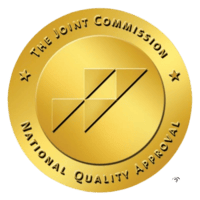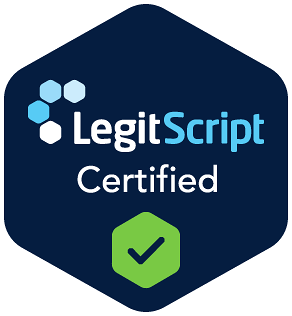Maneuvering the path of detox and early recovery can be challenging, and incorporating safe supplements into one’s regimen may provide much-needed support. While B-vitamins and omega-3 fatty acids are often highlighted for their benefits in boosting energy and stabilizing mood, the role of adaptogens like Rhodiola rosea in enhancing stress resilience should not be overlooked. However, selecting the right supplements requires careful consideration and guidance from healthcare professionals. The importance of choosing evidence-backed and third-party tested products cannot be overstated, but what factors should be prioritized to guarantee a safe and effective recovery journey? To explore comprehensive options and programs that align with these needs, you might consider checking BlueCrest Detox programs that offer personalized care.

Final Thoughts
Incorporating safe and evidence-based supplements can greatly enhance the detox and early recovery process by supporting overall health and well-being. Key nutrients such as B-vitamins and omega-3 fatty acids are essential for energy, neurological function, and mood stabilization. Adaptogens like Rhodiola rosea offer additional support for stress resilience and energy enhancement. Consulting healthcare professionals guarantees the selection of third-party tested supplements, promoting a nutrient-rich and safe recovery journey tailored to individual needs. For further reading on detox practices, it’s important to consider credible perspectives like those shared by Harvard Health, which critically evaluates detox supplements.
At BlueCrest Detox, we’re dedicated to elevating you from the struggles of substance use to the peaks of recovery and resilience. Our expert team offers personalized, evidence-based treatment services tailored to support your unique journey toward healing. Reach out to us for the compassionate care you deserve on your path to wellness. Follow us on Facebook for ongoing support, insights, and inspiration on your recovery journey.
Frequently Asked Questions
How Long Does Detox Typically Last?
The detox duration varies based on the substance involved, individual health, and addiction severity. Typically, detox phases range from a few days to several weeks. Initial detox phases may last 3-7 days, addressing acute withdrawal symptoms, followed by longer stabilization periods. A nutrient-rich diet and evidence-based practices, such as those discussed in our Detox Program, are essential during this time to support the body’s recovery process and guarantee a client-focused approach to achieving long-term wellness and sobriety.
Can Supplements Replace Professional Treatment Programs?
Supplements, while they may offer nutrient-rich support, cannot replace the thorough care provided by professional treatment programs. The efficacy of supplements in the context of detox and early recovery should be approached with caution. Professional guidance is essential to address the complex psychological and physiological needs during recovery. Evidence-based treatment programs offer structured support, ensuring that individuals receive tailored interventions to address the root causes of substance use, which supplements alone cannot achieve.
Are There Side Effects to Taking Detox Supplements?
Detox supplements, while offering potential detox benefits, may have side effects depending on the supplement types and individual health conditions. It’s essential to understand that these supplements are not universally safe and can interact with medications or cause adverse reactions. Nutrient-rich supplements, such as vitamins and minerals, should be considered in a client-focused manner. Consulting healthcare professionals before beginning any detox regimen guarantees an evidence-based approach to support recovery effectively. For more details on detox supplements, this resource provides a comprehensive understanding of potential concerns and practices associated with detox products.
How Do I Know if a Supplement Is Safe?
To determine if a supplement is safe, prioritize products with transparent ingredient sourcing and rigorous quality assurance processes. Look for supplements that have undergone third-party testing to verify their nutrient-rich content and absence of contaminants. Consult with healthcare professionals to guarantee the product aligns with your specific health needs. These steps help guarantee that the supplement is both effective and safe, supporting a client-focused approach to health and wellness.
Can Supplements Interact With My Prescribed Medications?
Supplement interactions with prescribed medications are a significant concern for maintaining medication efficacy and overall health. It is essential to consult healthcare professionals before incorporating any supplements into your regimen, as they can affect how your medications work. This interaction can either diminish the therapeutic effects or increase the risk of adverse effects. A nutrient-rich, evidence-based approach guarantees that any supplements used are compatible with your treatment plan and support ideal recovery outcomes.
Understanding the Detox Process
Detoxification, often referred to as detox, is a significant initial step in the journey to recovery from substance abuse. This process involves the systematic elimination of toxic substances from the body, which is essential for restoring physical health and preparing individuals for long-term recovery. The detox timeline varies depending on the substance used, the duration of use, and individual health factors. Understanding this timeline is fundamental for setting realistic expectations and planning appropriate care. Withdrawal symptoms often accompany detoxification, varying in intensity and duration. These symptoms can include anxiety, nausea, sweating, and more severe manifestations such as seizures or delirium tremens, particularly in alcohol dependency cases. Monitoring and managing these symptoms is vital for ensuring client safety and comfort during detox. Evidence-based approaches to detoxification emphasize a client-focused strategy that includes medical supervision and personalized care plans. Nutrient-rich support, such as proper hydration and balanced meals, plays an important role in alleviating withdrawal symptoms and promoting overall health. For more information on different treatment modalities, visit BlueCrest Detox’s Treatment Modalities.
Essential Vitamins and Minerals
An essential aspect of supporting the body during detox and recovery is the intake of essential vitamins and minerals. These nutrients play a critical role in restoring the body’s health and function, which may be compromised after prolonged substance use. Essential nutrients like vitamins A, C, and E are known for their antioxidant properties, helping to combat oxidative stress, a common consequence of addiction. B vitamins, including B1 (thiamine), B6, and B12, are particularly important in energy production and neurological health, often found deficient in individuals undergoing detox. Minerals such as magnesium and zinc are also paramount. Magnesium supports muscle and nerve function, while zinc contributes to immune health and enzyme function. Vitamin deficiencies are prevalent among those recovering from substance abuse, often due to poor dietary habits and malabsorption issues. Addressing these deficiencies through a balanced diet, and when necessary, supplements, can greatly aid recovery. Research emphasizes the importance of a tailored nutritional approach, focusing on replenishing these essential nutrients to support physical and mental health. Consulting with healthcare professionals to assess individual needs and correct any deficiencies is recommended to optimize the recovery process.
Herbal Supplements for Recovery
In the domain of recovery, herbal supplements have emerged as complementary tools to support detoxification and healing processes. These herbal remedies, rooted in traditional practices, offer natural treatments that can be integrated into recovery plans to enhance overall well-being. Milk thistle, for instance, is renowned for its liver-supportive properties, promoting detoxification by aiding in the regeneration of liver cells. Similarly, dandelion root is often utilized for its diuretic effects, facilitating the removal of toxins through increased urine production. Moreover, herbs such as ashwagandha and rhodiola are gaining attention for their adaptogenic properties, which help the body manage stress a vital factor in recovery. These herbs may support mental clarity and reduce fatigue, thereby contributing to a more balanced state during detoxification. Valerian root, known for its calming properties, can be beneficial for individuals experiencing anxiety or insomnia during early recovery stages. While herbal supplements present a natural avenue for supporting recovery, it is important to approach them with caution. Consulting healthcare professionals guarantees that these supplements are integrated safely within a personalized recovery plan, taking into account individual health conditions and potential interactions with other treatments.
Choosing Safe Supplement Options
As individuals consider incorporating herbal supplements into their recovery journey, making informed choices becomes crucial to secure safety and efficacy. Selecting the right supplements can provide natural energy and aid in mood stabilization, fundamental components for sustaining motivation and emotional balance during detox and early recovery. Evidence-based approaches to choosing supplements involve understanding their mechanisms and potential interactions with other treatments. Firstly, consult healthcare professionals specializing in addiction recovery to tailor supplement choices to individual needs. Look for supplements backed by scientific research, such as those containing B-vitamins, which support energy metabolism, or omega-3 fatty acids, known for their mood-stabilizing properties. Additionally, adaptogens like Rhodiola rosea may enhance natural energy and resilience to stress, while St. John’s Wort is noted for its role in mood stabilization. When evaluating supplements, prioritize products with third-party testing to guarantee purity and potency. Consider potential interactions with medications, as some supplements may affect the metabolism of drugs used in recovery.




